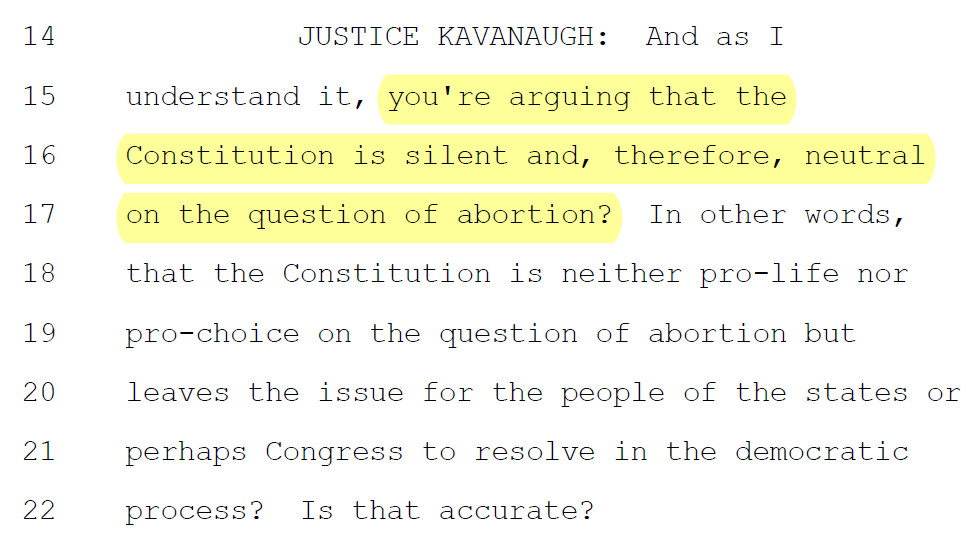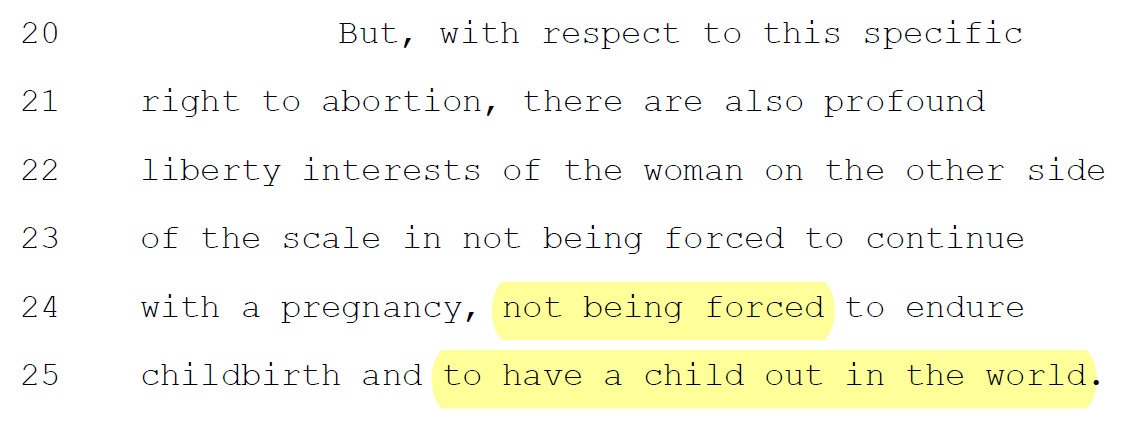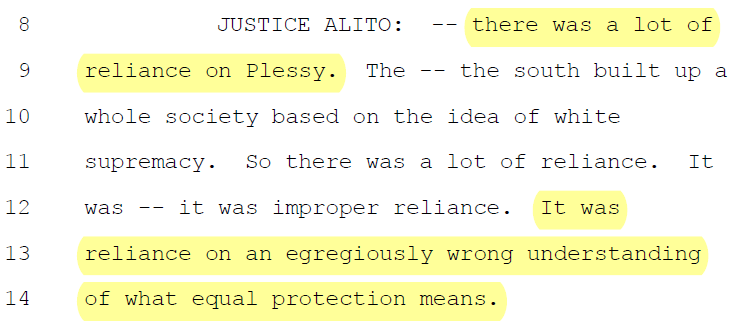
Monica speaking (so not our resident attorney, Kelsey). I'm slowly reading through the Dobbs oral arguments from Dec 1, and I'm going to put my random thoughts in this thread. 🧵Full transcript here: supremecourt.gov/oral_arguments…
Beginning of oral arguments by Solicitor General Scott Stewart: "Roe v. Wade and Planned Parenthood v. Casey haunt our country..." 

Justice Sotomayor says Case has never been challenged. Am I misunderstanding the meaning here? Haven't there been many, many laws designed to challenge Roe and Casey? Does Sotomayor mean only that the challenges haven't been successful? 

Sotomayor suggests the view that the fetus is a life is only a religious view. We responded to that idea in 5 points here: townhall.com/columnists/mon… 

Stewart says people of all kinds of views, including people of no faith, reasonably hold that personhood begins at a point other than viability. Note, btw, that nearly the entire world besides us restricts abortion well before viability: lozierinstitute.org/internationala… 

Sotomayor, Kagan, & Breyer argue stare decisis means we need strong basis for overturning major decisions so SCOTUS doesn't appear to merely bow to public opinion. Here Barrett questions whether public opinion is a major consideration when deciding if a ruling is constitutional. 

Stewart responds to Barrett that SCOTUS was wrong in Casey to consider public opinion when discussing stare decisis. The Court should look to the Constitution rather than to what everyone will think. 

The phrase "pro-life" is recorded 3x in the transcript, by Kavanaugh and Alito. I'm used to only pro-lifers using the phrase. Idk if it means anything in particular from SCOTUS justices. 

If Dobbs holds the Constitution is neutral on abortion, seems like that would be a huge improvement over Roe and Casey but also an uphill battle if we are later trying to get SCOTUS to recognize the 14th amendment applies to humans before birth. 

Stewart's oral arguments are done. Now it's the turn of Julie Rikelman, attorney with Center for Reproductive Rights. Here's her opening.
Wouldn't a law that bans abortion only after viability still be "forcing women to remain pregnant and give birth"?
Wouldn't a law that bans abortion only after viability still be "forcing women to remain pregnant and give birth"?

Justice Thomas wants Rikelman's view on bodily autonomy, so he asks about whether the state can regulate a woman's behavior pre-viability when it isn't regarding abortion. He uses the example of cocaine use during pregnancy. 

Rikelman responds to Thomas that the state can regulate behavior both pre- and post-viability to preserve fetal life and women's health, but the one thing the state can't do is take away the abortion decision pre-viability. 

Roberts asks if a 15 week ban (as opposed to a total ban, I think) has the same significant impacts on women. Rikelman says yes. I appreciate that her response acknowledges all the reasons people seek later abortion that *aren't* about fetal anomaly or life of the mother. 

Roe v. Wade forces our laws to be some of the most radical, lax abortion laws in the world. It's a relief to see that fact acknowledged by the Supreme Court Chief Justice. 

Barrett mentions the limits of bodily autonomy arguments and uses the example of vaccines. Vaccines continue to be an interesting thought experiment re bodily rights since (speaking broadly ofc) a lot of people support both abortion rights and vaccine mandates or oppose both. 

As I've said before, the fact some people support both abortion rights & vax mandates is usually *not* a sign of hypocrisy. But it is a sign that bodily rights arguments are actually pretty limited.
https://twitter.com/secularprolife/status/1427619715107729408
Part of the argument from DOJ Solicitor General Elizabeth Prelogar hits one of my major pet peeves. Our uteruses aren't in some other dimension. The birth canal isn't a teleporter. Children in the womb are already in this world; abortion takes them out of it. 

Alito is skeptical that stare decisis must mean SCOTUS can't overrule precedent absent material change in circumstances. He gets fairly aggressive in his questioning of Prelogar on the topic. 





Many people--PL and PC alike--argue that the solution to reducing abortion isn't laws, but contraception. It's interesting, then, that the side arguing for protecting Roe v. Wade is also arguing that contraception won't fix this problem. 

Like Rikelman, Prelogar acknowledges the many reasons women seek later abortions that don't have to do with fetal anomaly or life of the mother. 

Prelogar argues that the right to abortion is, in part, the right to not "have a child out in the world." Has any such right been acknowledged by the courts before? What would such a right have to do with bodily autonomy? 

• • •
Missing some Tweet in this thread? You can try to
force a refresh










